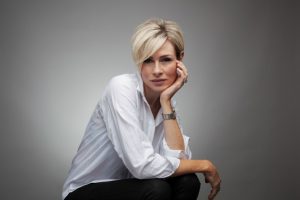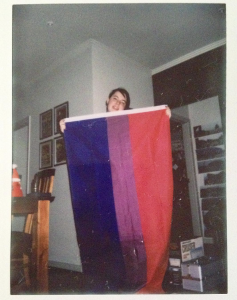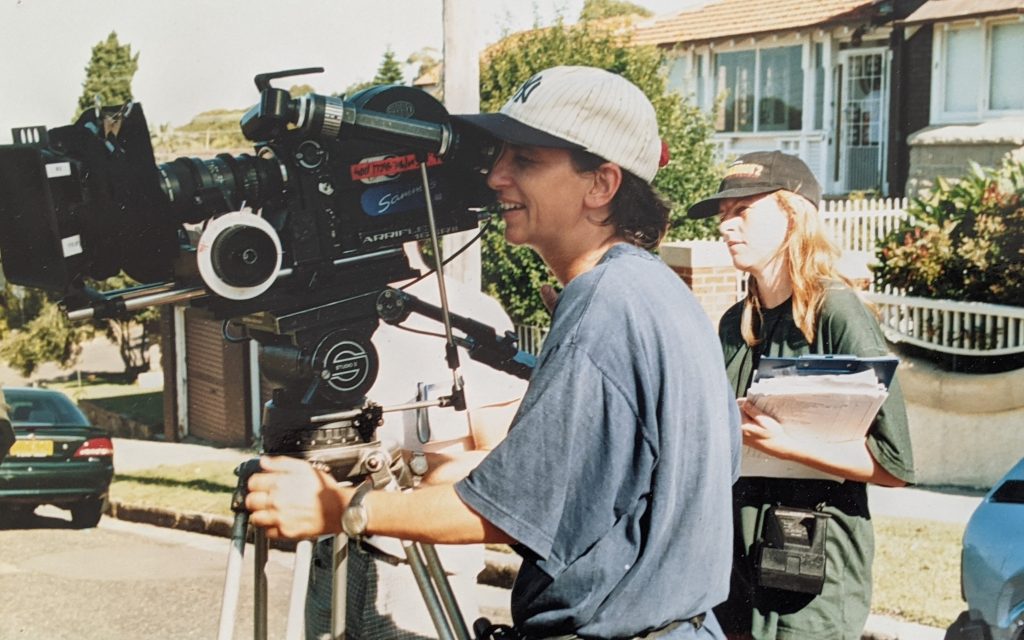The Past, Present and Future of Journalism with Emma Macdonald
As the current associate editor of HerCanberra, Emma Macdonald has had an incredible journalism career that spans for more than 25 years. She started working for the Financial Review fresh out of university before settling in at the Canberra Times.
It was in 2016 when Emma made the decision to jump ship and write for HerCanberra while simultaneously running her charity, Send Hope Not Flowers supporting the safe birth of children in developing countries.

I was fortunate enough to sit down with Emma over coffee to discuss her impressive career and her advice for the next generation of aspiring journalists.
Q: How did you get into journalism?
I have always loved writing. I was in about third grade when I wrote this piece, I couldn’t spell at this stage but I certainly liked to use colourful language. I remember getting five stars and I had to read it out at assembly, that really gave me confidence as a writer. One little story in third grade really set me on the path, I just always, always, always, wanted to be a journalist and I can’t remember a time where I wasn’t keen on that. I always enjoyed the writing process, reading, words, I was quite chatting, quite nosey and those are the prerequisites for a good journalist.
Q: Throughout your career, what has been the biggest highlight?
I have honestly had a lot of highlights, amazing opportunities and joy. The first piece I had published in the Financial Review won a Walkley. This would become one of two Walkley awards I would receive, alongside a John Douglas British Prize, the Vincent Fairfax Ethics in Leadership Fellowship and Paul Lyneham Press Gallery Journalism award.
But I think possibly my most important local contribution was breaking the Mr Fluffy story, which led to a $1 billion agreement that every single Mr Fluffy house would be torn down. Through writing that I had come to discover that we had lived in a Mr Fluffy house as our first home. I felt really sad and developed a little post-traumatic stress from seeing all these people in crisis that didn’t know what they were dealing with. But I had a tip-off that the houses were dangerous and I had to keep on top of it and over three months I kept writing article after article even though the government denied it. Then one day this woman called me in tears after being locked out of her house when they found asbestos in her babies crib, blankets and clothing. They locked her out and she had nowhere to go with her three children. That got on the front page and finally, people caught on and it snowballed from there. I felt really proud of that because had I not kept at it they would have brushed it under the carpet and more people would have gotten sick and died, I went to four mesothelioma funerals in those two years alone.
Q: What are some of the negative aspects of the Journalism industry?
Not much, some people are pigs and are really negative. Some politicians I have had run-ins with have acted a bit dishonourably. But I think they look at journalists and think the same thing. What is really annoying is that you have a story and two hours later you have written it in this flurry of activity and one sentence or statement people just jump on and slam, not realising how much work and pressure you are under and how much you have achieved in that time. People are so quick to criticize; especially with social media. People just get ranty. We have lost our sense of appreciation and we should be a little bit more respectful when a trained journalist has taken the effort to bring you news. I feel it’s a very negative, very quick circle of feedback where people read something and instantly bash out a critical response and that’s painful.
Q: What are the biggest changes you have seen in the journalism and media industry?
When I started we would come to work late and sit down. We would decide what we would write for the day; complete our articles by 10pm before publishing at midnight for readers in the morning. Now you get to work at 8am and you can have your first story up within an hour. You could do 10 stories a day; there is no end to it, no space to be filled. With a physical paper and daily news cycle, you were given only 300 words. Now its posts after post, it is so veracious and it is endless. It is very hard as a consumer of news to filter through all these posts and click bait to find the most important stories of the day.
Q: Why did you decide to move from the Canberra Times to HerCanberra?
I got to an age where I thought if I don’t move now, I would stay put and never leave. I was just courageous enough to make the leap and thank god I did, it is so much better on the other side. It was the best thing for me to leave, I had done all I could do, I felt very happy and it has been an absolute pleasure to do something different. It was scary but what doesn’t kill you makes you stronger, and I can’t tell you how happy I am and I have not regretted it for one moment.
Q: What advice do you have for the next generation of journalists coming through?
From about 16–18 years old you need to be consuming news, not just on Instagram and Facebook, but searching through media websites and papers. When you go to university you should do some courses that take you out of your comfort zone. You really need to go further afield. I learnt more in my first week in the press gallery than I did in three years at university.
At university, I put my hand up and got a week interning at Parliament House. I went out to big government dinners, met Paul Keating and Allen Ramsey – who was a very famous Fairfax journalist. The Financial Review had a researches position available up in the press gallery. Allen Ramsey went to the editor about me and said ‘you need to hire this girl because she has been doing this work experience and she is really good and really keen’ and I got the position. This just showed me, it is not what you know but who you know and its all networking. That was a really clear example that you need to get out of university routine and be in the workforce unpaid, do the hard yards, do it for the love and the rest will follow.





Be the first to comment!